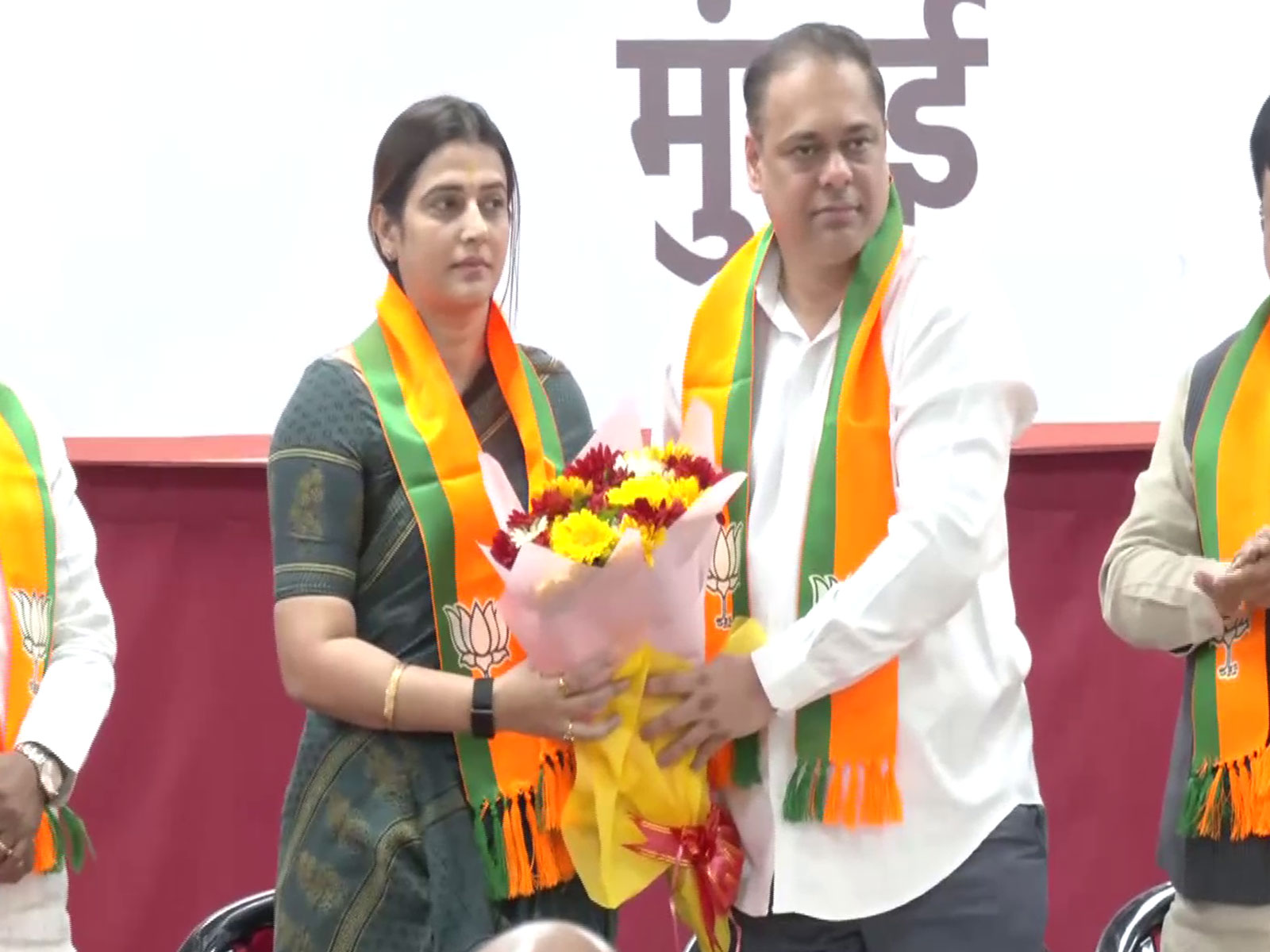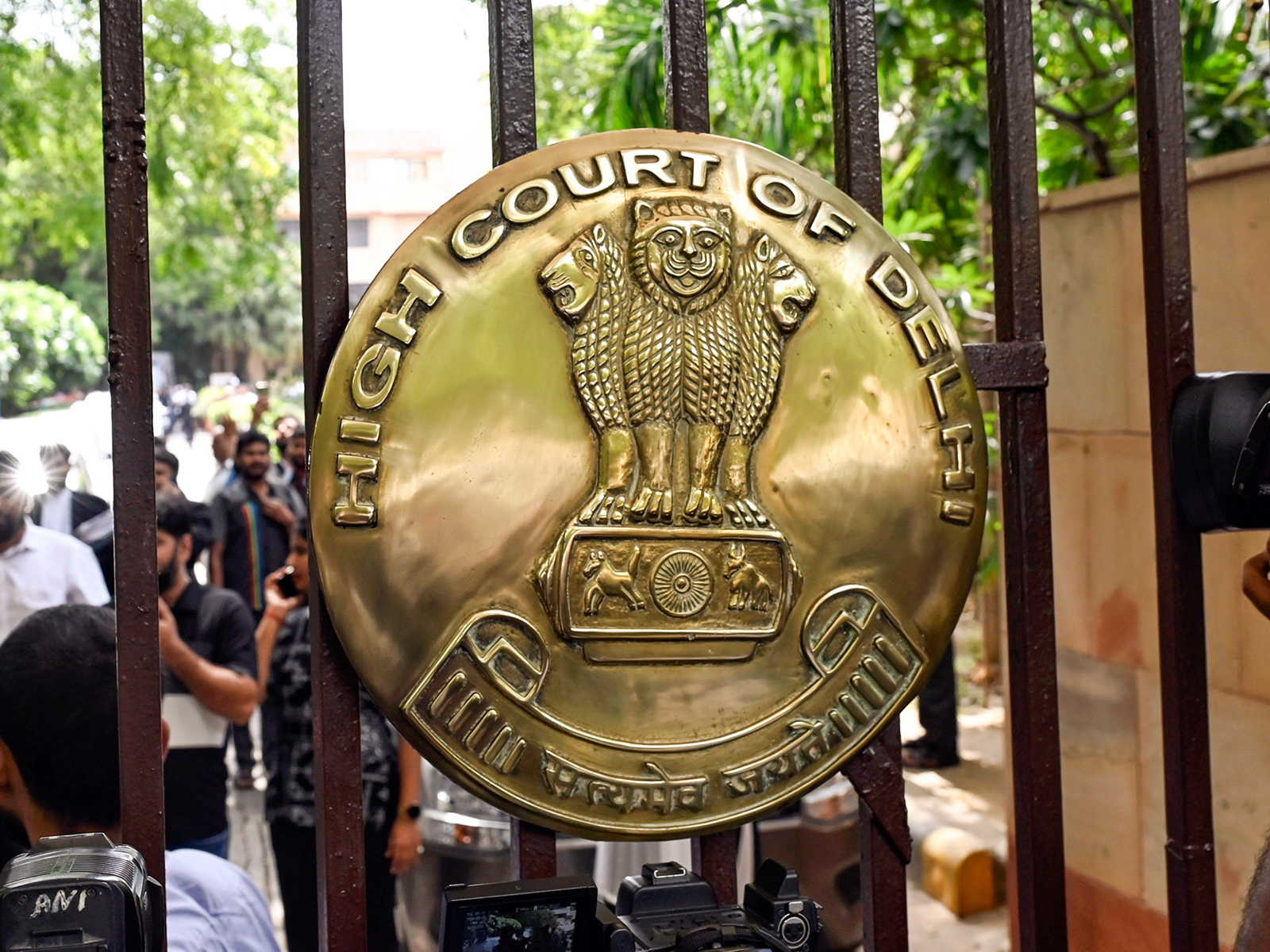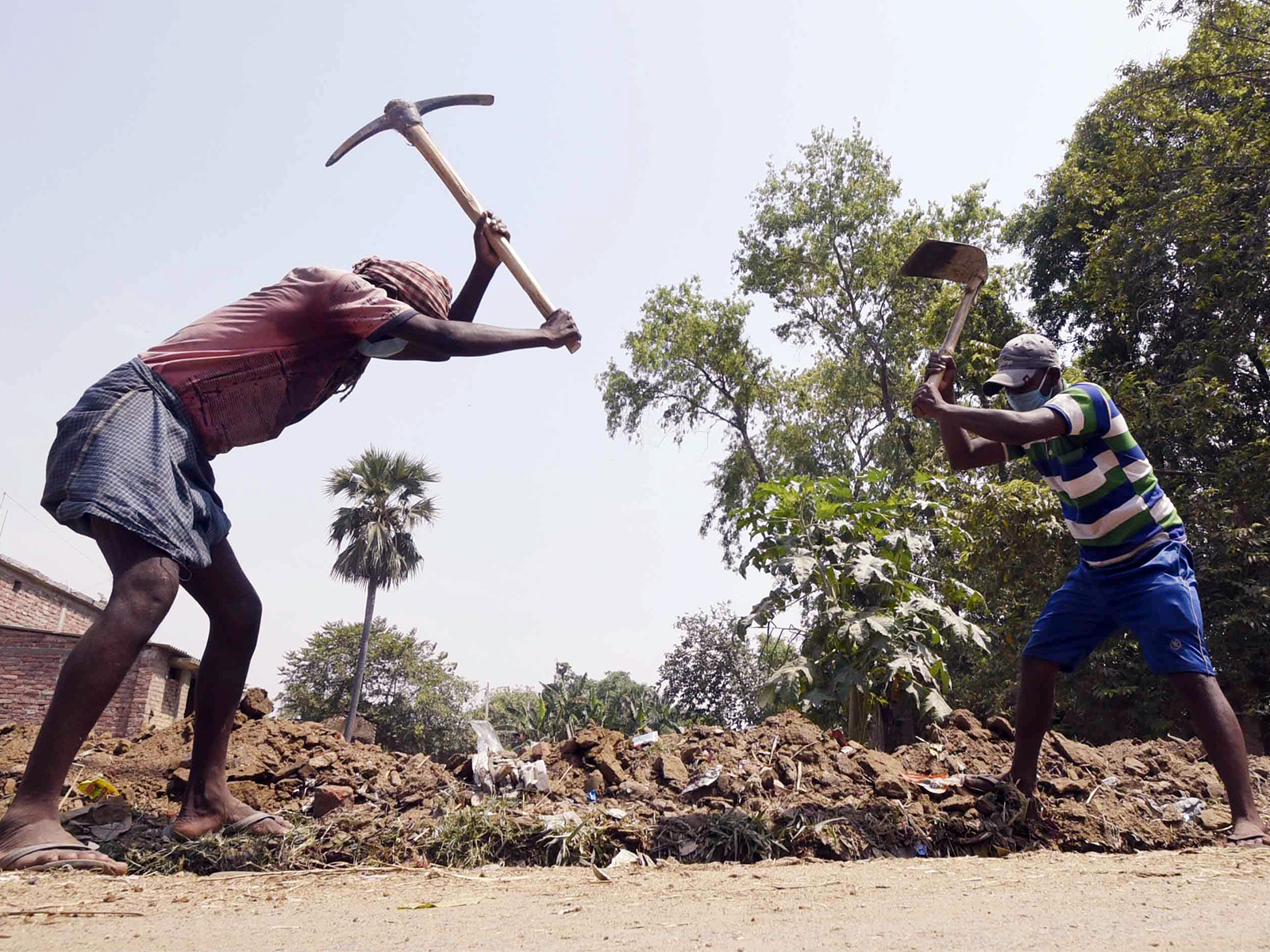Year Ender: NGT issued remarkable orders pertaining to environmental cases
Dec 28, 2022

New Delhi [India], December 28 : The National Green Tribunal issued some remarkable orders while dealing with environmental cases in 2022, according to the NGT on Tuesday.
The Green court has also levied several crores of environmental compensation on different states while finding them in violation of green laws. The National Green Tribunal (NGT) was formed in 2010 under National Green Tribunal Act as a statutory body to deal with cases related to environmental issues, said the NGT.
The tribunal in compliance with Municipal Solid Waste Management Rules, 2016 and other environmental issues, levied compensation on States like West Bengal Rs. 3500 crores, Punjab Rs. 180 crores, Telangana Rs. 177 crore, Maharashtra Rs. 1200 crores. They failed to scientifically remediate the accumulated solid waste which remains source of damage to the environment by release of hazardous gases and contamination of groundwater. The State of West Bengal deposited Rs. 3,500 crores, apart from deposits by other States, as per NGT.
After going through media reports titled "seven charred to death in fire near Ludhiana dumpsite", the Tribunal found that there was a failure to scientifically handle more than 30 lakh MT solid waste which resulted in seven deaths, which continued to the source of damage to the environment and public health by the release of methane and other hazardous gases and contamination of groundwater. The Tribunal levied compensation of Rs. 100 crores out of which Rs. 57.5 lakh was directed to be paid to the heir of the victim and directed remedial measures on war footing.
In media reports titled "Delhi: Massive Fire at Bhalswa Dump Yard, Fourth This Year; 13 Fire Tenders on Spot", the Green Court found that there was a failure to scientifically handle more than 1 crore MT solid waste which continued to the source of damage to the environment and public health by the release of methane and other hazardous gases and contamination of groundwater. The Tribunal levied compensation of Rs. 900 crores and directed remedial measures on war footings.
The matter also relates to the issue of the illegal functioning of Hotels, Resorts, Pubs, Clubs and Ashrams and other illegal commercial activities in the Chilla Range of Rajaji National Park. The tribunal held that all operating establishments be closed and that all commercial activity in the forest is stopped.
There was a matter related to the impact of the proposed musical festival close to the Tiger reserve at Ranthambhore, Rajasthan which endangered wildlife. The Tribunal holds that the said event can only be held after the requisite approvals have been taken. Ranthambore Tiger Reserve is an eco-sensitive zone and any non-forest activities in wildlife are intended to maintain a balance between the development and conservation of wildlife and biodiversity as laid down by the Supreme Court.
NGT recently noted that cutting of trees in Village Sarai Kawaja, Faridabad in violation of the order holding the area to be 'deemed forest'. Tribunal found that trees were cut illegally after which compensation of 10 crores for cutting 500 trees by taking the value of each tree as 2 lakhs were imposed to restore the status of the deemed forest.
On the basis of a media report titled "Detecting microplastics in human blood", it was found that there is a need to conduct further studies, considering the studies already conducted, to be steered by the Committee comprising of CPCB, ICMR, Central Institute of Petrochemicals Engineering & Technology (CIPET), NCSCM, and any other expert institutions as required, under the Nodal coordination of CPCB and called for suggestions which may cover standards for a safe environment, remedial steps to reduce the menace of microplastic and addressing other incidental issues.
The matter relates to the illegal extraction of groundwater by builders operating in Noida. The tribunal directed for the sealing of all illegally operating borewells and recovery of compensation. In absence of clear data, interim/floor level compensation is equal to atleast 0.5% of the project cost of the PPs, apart from remedial action for the future. The tribunal also directed that while granting consents, the requirement of installing digital water meters connected to central servers be laid down.
The issue relates discharge of untreated sewage at Lar, District Deora, Uttar Pradesh. Tribunal held that compensation of 7.5 crores is to be deposited by the State of Uttar Pradesh. Tribunal directed that a joint committee headed by ACS/Principal Secretary, Urban Development, UP with nominees of CPCB, State PCB and District Magistrate, Deoria as members may oversee the utilisation of the amount for the purpose.
In this year, while dealing with the matter relates to a violation of environmental norms in maintaining the ponds at Kadaura, District Jalaun, Uttar Pradesh. The hon'ble tribunal directed that encroachment be removed and steps for treating wastewater and its utilization be taken and directed that all command/catchment areas are maintained and no disposal of sludge be allowed.
The matter relates to a violation of environmental norms in setting up of a construction project - "Saviour Park" in Mohan Nagar, Ghaziabad, UP without valid Environmental Clearance and without requisite safeguards. The hon'ble tribunal held that the report of the joint committee is accepted and that the compensation regarding violating EC conditions and illegal extraction of water was approved. The tribunal further held that PP is liable for further compensation for violating requirements of prior EC and CTE thereby levying a compensation of 40 crores after taking the project cost of 800 crores which was directed to be deposited within two months.
In matter relates to the construction, operation and maintenance of balance work for 4 laning of the stretch of NH-17B from Varnapuri to Sada Junction. The said appeal has been filed against CRZ Clearance for the project stating that it is against environmental norms without EIA studies and that the project is close to erosion-prone Baina Beach and Bogda-Desterro Hillock. It was observed by the tribunal that there was a binding judgment of the Bombay High Court directing handing over of land to enable NHAI to construct the road thereby concluding that there was no ground to interfere with the said CRZ clearance of the project.
The matter relates to whether EIA is necessary for navigation infrastructure in the River Ganga in the stretch from Allahabad to Haldia also known as the National Waterway 1, undertaken by the Inland Waterways Authority of India, the project proponent. The tribunal held that the matter was concerned Allahabad High Court order deals with the matter and there is no scope for the tribunal to consider the matter as far as this project is concerned as the High Court expressly referred to the issue of EC and allowed the PP to proceed with the project and get EIA conducted after commissioning of the project.
The matter relates to the discharge of untreated effluents into the Arabian Sea at Navapur, and into creeks and nallas in the vicinity by industries established in an industrial area, set up by Maharashtra Industrial Development Corporation(MIDC). The Tribunal directed Proponents to pay EC and held that MIDC is liable to pay compensation of 2 crores which was directed to be used for the restoration of the environment and healthcare activities of people in the area and under the supervision of a Committee comprising CPCB, MPCB, a senior Medical Expert nominated by Secretary, Medical and Health Department of Government of Maharashtra, National Institute of Oceanography and Collector, Palghar. MPCB and Collector shall be nodal authorities. The hon'ble tribunal also directed Enforcement Directorate to examine the matter for appropriate action.
In the matter relates to remedial action against the violation of environmental norms by Trident Factory, Dhanaula, Mansa Road, Barnala, Punjab. Hon'ble Tribunal imposed compensation to the tune of 5 crores on the 'polluter pays' principle considering the period and nature of violations and financial capacity of the unit but on a conservative estimate and directed CPCB and MoEF&CC through the CPCB to file a separate status report on the status of compliance of ZLD with reference to the other categories of industries particularly for distilleries, textile, pulp and paper, pharmaceutical etc.
In the matter pertains to the prevention, control and abatement of pollution of the river Ganga. Hon'ble tribunal suggested that the Member Secretary, NGC i.e. DG, NMCG may place the agenda of reviewing the existing mechanism for executing the work of setting up and maintaining requisite treatment systems to ensure the prevention of pollution of Ganga in the next meeting of the NGC.
On the basis of a news item titled "Tourism has brought economic prosperity to the Himalayan region, but the environmental cost has been catastrophic", it was found that huge damage to the environment in eco-sensitive Himalayan States of India on account of unregulated tourism activities, which needs to be regulated and checked to effectuate the Sustainable Development principle. The hon'ble tribunal directed the G.B. Pant National Institute of Himalayan Environment, Almora, which is tasked with studies of the Himalayan region to undertake studies and to update any study already conducted in light of media reports.
In the matter related to undertaking of carrying capacity assessment of eco-sensitive areas to give effect to the principle of 'Sustainable Development', the Tribunal issued direction for undertaking a carrying capacity study of atleast two eco-sensitive areas in every State/UT, to be coordinated by CPCB with concerned States/Uts. Tribunal while disposing of the matter directed that MoEF & CC needs to devise a mechanism to get conservation plans prepared for all the Notified ESZs and EFAs and State Governments through the Chief Secretaries to need to identify ESZs and EFAs for preparing and regulating conservation plans and take further measures accordingly.
A matter was filed seeking directions to evolve standards for indoor air quality. The tribunal held that the need for such regulation is certainly shown by the guidelines of WHO and CSIR. Tribunal observed that there is no statutory bar to the regulation of indoor air quality under the Air Act or the EP Act and the Rules. Tribunal directed the committee to evolve an appropriate mechanism by the MoEF and CPCB in coordination with other concerned Ministries particularly the Ministry of Urban Affairs and Ministry of Health, with CPCB being the nodal agency.
















